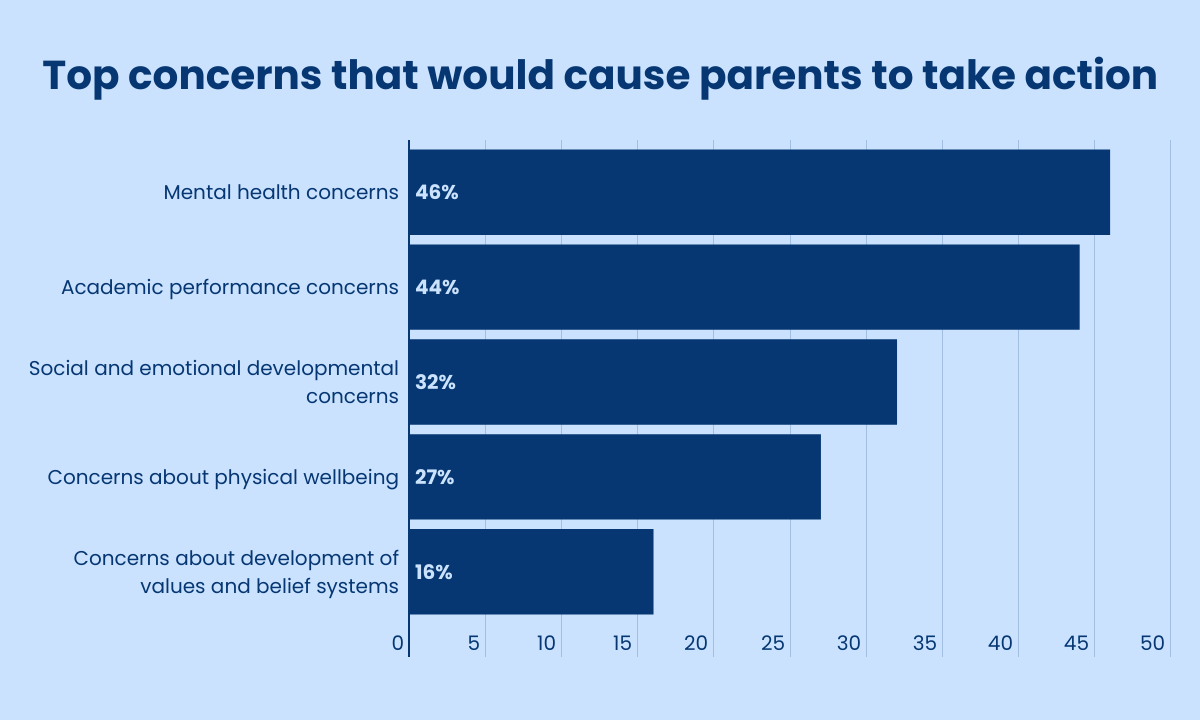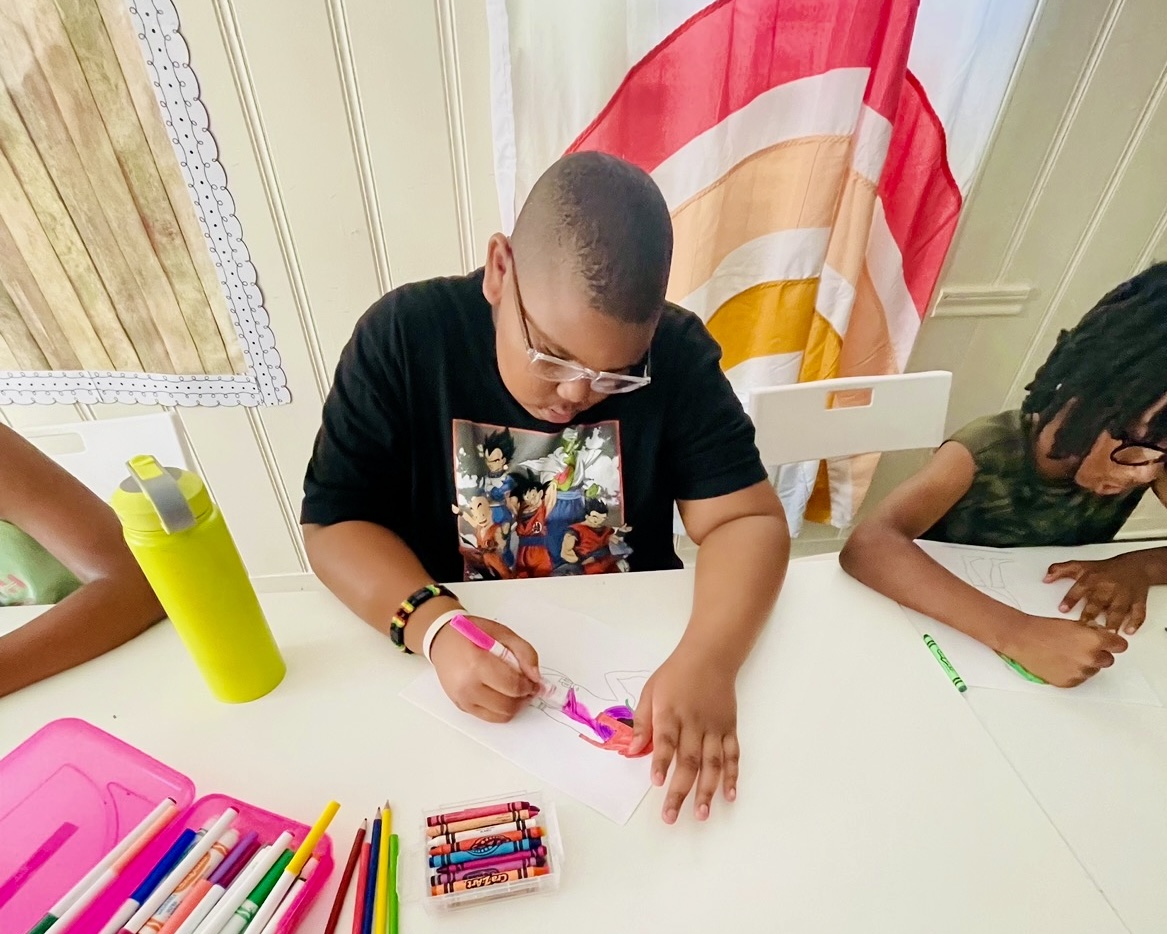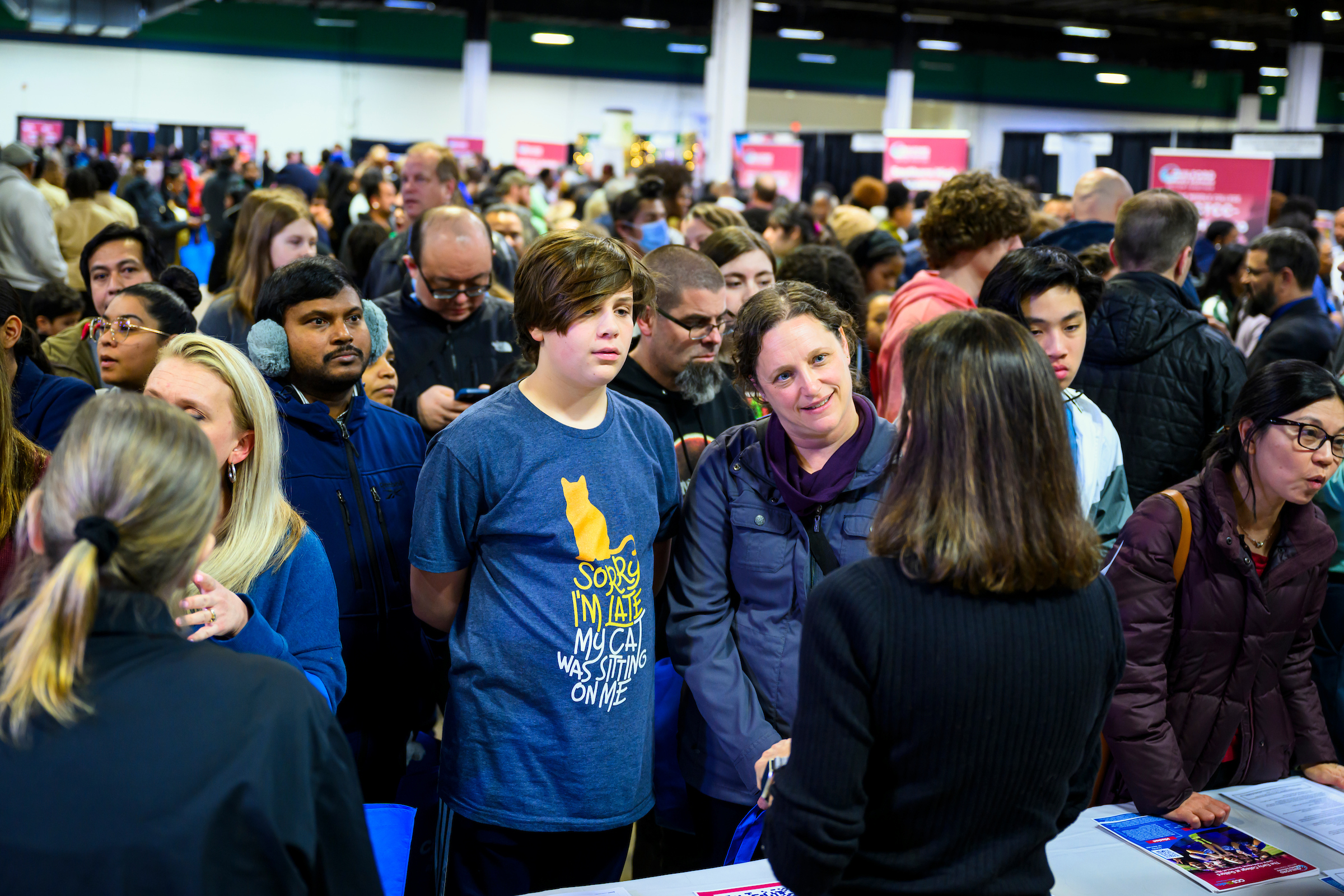Report: Kids’ Mental Health Tops Reasons Why Parents Consider Changing Schools
Among parents ‘open minded’ about school choice, academic performance came in second as a motivating factor, consulting firm Tyton Partners found.

Get stories like this delivered straight to your inbox. Sign up for The 74 Newsletter
Nearly half of families considering new school options — especially parents of middle schoolers — say the main reason they’d make a switch is their children’s mental health, a new report shows.
Districts that have faced historic enrollment losses could lose even more families if they don’t respond to student needs, according to the report, released Thursday and provided exclusively to The 74 by Tyton Partners, a consulting firm that has tracked the shifting education landscape since the pandemic.
Based on a survey of what the researchers call “open-minded parents” — those who show interest in school choice options — 46% said their children’s mental health drove them to find something different. Among middle school parents, the rate was 54%, followed by 48% of high school parents and 44% of parents with elementary school children.
Adam Newman, founding partner at Tyton, said he was “dismayed — but not surprised — by how mental health concerns color parents’ choices.”
“For many parents, there’s a sense that ‘school’ isn’t working, and alternatives might provide a much-needed spark,” he said.
The survey results offer a different look at the youth mental health crisis that escalated in the wake of pandemic school closures. It comes as federal relief funds — and many of the mental health investments that went with them — are set to expire later this year. Many districts used the money for extra mental health professionals and special rooms for students experiencing anxiety or acting out in class.
With one counselor for every 385 students, the average ratio is the lowest it’s been since the mid 1980s, according to the American School Counselor Association. But it still doesn’t reach the organization’s recommended ratio of 250-to-1. Jill Cook, executive director of the association, said some districts might not be able to keep the additional counselors, social workers and school psychologists they’ve hired.
“The hope is … that districts would choose to keep these positions because [they] contribute to student success,” Cook said. “Students who have access to a school counselor often have improved attendance, improved achievement and fewer disciplinary issues.”
Due to staff shortages, schools have also expanded the use of teletherapy programs. The federal government aims to boost the supply of mental health professionals through grant programs to districts, states and universities.
‘A big reason people leave’
But some students crying for help can’t find it. Erin Goldman’s daughter reached out to a counselor at her Houston middle school in the fall of 2022 when she received harassing messages on social media, like “KYS,” an acronym for kill yourself. But the counselor couldn’t fit her in.
“She couldn’t get on the calendar. Then the guidance counselor was just supposed to come find her when she had availability, but that never happened,” Goldman said. The cyberbullying was affecting all areas of her daughter’s life. “She would not get up in the morning. It was a constant battle, like screaming matches. Her grades were suffering.”
In the middle of the school year, her parents transferred her to Dietrich Bonhoeffer Academy, a small private middle school.
“In less than two weeks, she was happy,” she said. “The person who I thought would never like school again likes going to school.”
Consultants who help families navigate school choice options aren’t surprised that emotional health concerns are prompting some parents to change schools.
“If your child is being bullied, that to me is a mental health issue,” said Colleen Dippel, CEO of Families Empowered, a Texas-based nonprofit. “It’s a big reason people leave their schools. Their child says things like ‘I hate school. I don’t want to go to school.’ That’s pretty common.”
Tasha Tarpley, a single mother in Texas, pulled her son Preston out of the Red Oak Independent School District, south of Dallas, after a series of confrontations he had with other students. After one fight, he was suspended.
“My child was afraid to go to school,” she said. “I have a tall 10-year-old. He’s a big guy, and quite naturally [they’re] going to blame everything on the big one.”
On the way to school, she said his mood would drop, and his face “looked like he’d just had a very emotionally, psychologically rough day.” A year ago, she joined Leading Little Arrows Homeschool Academy, a network supporting homeschool families with curriculum and online or in-person classes.
“We’ve got our lives back,” she said. “He has healthy friendships, and I’m in a healthier state as a mom.”

A ‘new arena of competition’
But sometimes, simply moving to another public school in the same district, instead of leaving the system, can solve the problem, said Whitney Oakley, superintendent of the Guilford County Schools, which includes Greensboro, North Carolina.
The district offers 66 choice options and this year saw at least an 11% increase in applications for choice schools, compared with last year. Oakley took advantage of the system for her own son, who struggles with anxiety.
“I knew that he would probably benefit from a smaller middle school,” she said. “Every family deserves access to that kind of option.”
In addition to the relief funds, the district has received $20 million in federal grants for mental health services, and last school year, students and teachers participated in more than 10,000 therapy sessions, she said. While the district has seen small decreases in enrollment over the past three years, Oakley said some families who’d left the system have returned.
“I think all public school systems are going to find themselves in this new arena of competition,” she said. “What can we offer here to make sure that choice doesn’t mean us or them? Choice means what best fits the needs of this particular student.”

According to the Tyton report, the “enduring attraction of a traditional school environment” is what keeps some parents from pursuing other options. Among those who said they would consider switching schools, 41% said the “benefits of school culture and extracurriculars” are holding them back.
Parent comments cited in the report also reflect concerns that students would miss out on “foundational experiences” if they cut ties to public schools.
The report is the first in a three-part series about the “evolving landscape of parents’ K-12 education options.” In addition to holding focus groups, the researchers surveyed more than 2,000 parents last August. Almost two-thirds said they were only looking to supplement their children’s existing education through extracurricular programs, including tutoring or enrichment activities.
Ten percent indicated they would transfer their child to a private school or even an alternative model like a microschool. And more than a quarter of the respondents said they would consider piecing together multiple options to provide their child a customized experience.
Following mental health, academic performance ranked second among the reasons parents said they would choose another schooling option. Forty-four percent of parents open to making a change cited academics as a driving factor.
Tarpley said her son was in fourth grade before she learned he was missing some basic math skills.
“I needed to know way back in kindergarten that they were seeing some challenges with addition and subtraction — even if it’s just adding doughnuts and cookies,” she said.
Choice options certainly haven’t worked for everyone. For some families, the new arrangements didn’t meet their children’s needs. In other cases, private schools didn’t accept their kids.
Pamela Lang pulled her son, who has ADHD, out of the Kyrene School District, near Phoenix, when he was in fourth grade. She used Arizona’s education savings account program. But most independent and religious schools turned him away.
Arizona also allows families to transfer outside of their district, but for her son, “schools are always magically full,” she said. Now 16, he attends a private school for students with disabilities, but she’s considered returning to the public system. “At this point, our options are so limited.”
Newman, at Tyton, said the researchers have not yet followed up with parents to see if those who changed schools are satisfied with their decision. But they plan to in the future.
The second paper in the series will examine why parents decide not to switch, and the third will look at the rise of organizations like Dippel’s that advise families on their options.
Most of the parents that seek her group’s help are “making really good parenting decisions,” she said. “By and large, they’re not hysterical. They don’t want to rip down the [traditional] system. They’re just like, ‘I want to pack up my stuff and get my kid out of this toxic situation.’ ”
Disclosure: Walton Family Foundation and Stand Together Trust provides financial support to Tyton Partners and The 74.
Get stories like these delivered straight to your inbox. Sign up for The 74 Newsletter

;)
